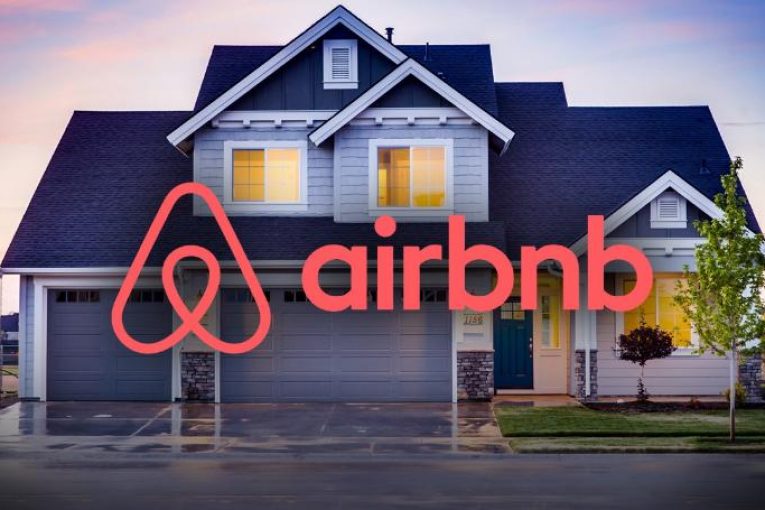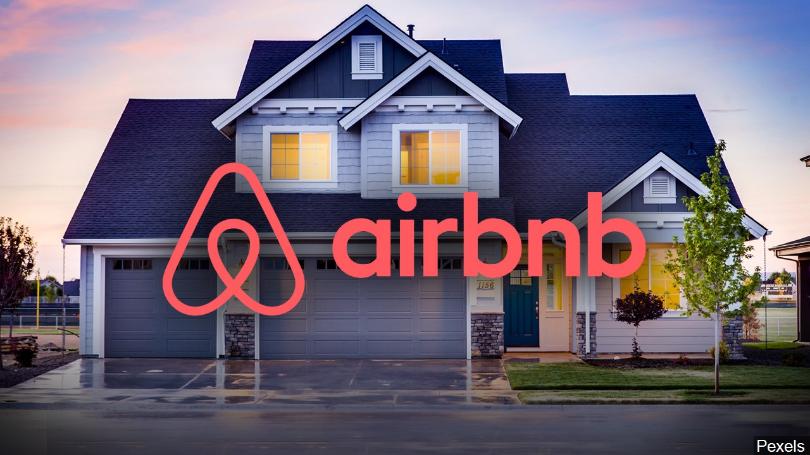

The city council tonight will look at short-term residential rentals. According to the staff report, Airbnb provides around $180,000 per year in the form of TOT (transient occupancy tax).
Staff points out that while this is by far the largest provider of short-term rentals for the city, it is no the only one. Moreover, “The City currently does not have agreements with other providers to enable
collection of transient occupancy tax, although staff is working to obtain them.”
Council is being asked to receive an update on short-term rentals and then potentially direct staff to suggest municipal code changes that would allow them to regulate and capitalized on short-term rentals.
While the city has authorized the building and completion of two new hotels as well as an expansion of a third one, the market is starting to shift.
Staff writes: “The sharing economy has capitalized on a market for short-term residential rentals, traditionally filled by hotels, motels and bed & breakfast accommodations. For the past several years, platforms like Airbnb, VRBO, HomeAway and others have captured overnight stays for visitors to Davis.”
The platform allows for a variety of different platforms and amenities for visitors.
“Visitors book online, just as they would a more traditional hotel. Short-term rentals have proven to be a popular option amongst consumers,” staff writes. “A short-term rental is generally considered to be a stay of less than 30 days. The distinguishing factor between sharing platforms and a traditional online travel company like Orbitz is that individuals voluntarily list their  personal homes, rentals, and rooms on a website like Airbnb – setting their own rental price, house rules, and length of stay.
personal homes, rentals, and rooms on a website like Airbnb – setting their own rental price, house rules, and length of stay.
“In this way, Airbnb and similar companies provide an online platform for individuals to act as temporary hotels or landlords while oftentimes escaping the traditional local regulation of hotels, motels and other more traditional short-term rental businesses.”
As far back as 2015, the council discussed short-term rentals. At that time, they decided not to require additional regulation in hopes of encouraging the new economy.
In 2017, staff recommended that the city manager enter into an agreement with Airbnb to require them to collect TOT on short-term rentals.
Staff notes: “City code already allowed for this, but the agreement was needed to require Airbnb to collect the TOT. TOT is currently 12% the cost of a room night and is a general fund revenue. Current TOT proceeds from Airbnb, which accounts for the majority of short-term rental business in Davis, was over $185,000 in calendar year 2019.”
For the city, this money is significant and part of a growing package of new revenues that the city hopes can help close some of the shortfalls.
However, these platforms also present problems for the city.
Staff writes, “Short-term rental platform growth in cities across the country has highlighted numerous neighborhood and legal issues related to local control and regulation.”
Cities have grappled with how to impose local business license requirements, collect various taxes, and mitigate the impact on neighborhoods and available housing.
Staff for instance notes: “Public response to short-term rentals tends to vary, with some objecting to neighbors’ frequent short-term rental of their homes in traditional single-family residential areas, while others cite the economic need and freedom to travel and/or supplement income for mortgage or rental payments.”
In addition, “Traditional brick and mortar hotels have shared frustration that online short-term rental platforms do not have to abide by the same regulations, thus creating an unfair playing field.”
A growing problem is that the city has received complaints from neighbors about various short-term rentals and how they have been managed.
One example provided in the staff report shows a short-term rental in South Davis causing consistent complaints.
The neighbors are complaining about “increased traffic, people coming and going at all hours, people looking for their short-term rental who mistakenly enter the wrong private residence, noise, increased police activity, removal of a “regular” rental property for a full-time resident from the market, and the general frustration of the commercialization of an otherwise residential neighborhood.”
The south Davis neighborhood complaint raises particular concerns that “the single-family home is being managed in a manner that allows for multiple short-term rental users to stay at the home on a given night functioning as a quasi-hotel resulting in a level of intensity that impacts that quality of life on an otherwise quiet cul-de-sac.”
These are similar to concerns about how people manage rental properties in single-family neighborhoods.
However, staff points out that this situation “appears to be an outlier” as staff has heard only “sporadic complaints about short-term rental activity that occurs elsewhere in the City.”
California cities can directly regulate the use of short-term rentals in order to mitigate the impact that such rentals have on the local community.
But staff notes, “there is not a single standard template that cities have used to regulate such rentals, as they are highly dependent on the character and concerns of the local community and existing local ordinances.”
The city has some options:
- Maintain the status quo
- Expand the number of TOT agreements
- Limit the numbers of nights a property can be used as a short-term rental
- Enact a permanent resident occupancy requirement where an owner must spend a minimum number of nights per year at the residence where the short-term rental is offered.
- Require specific short-term rental permitting process
- Notify licensed operators that while the City does not enforce private Covenants, Codes, and Restrictions
- Require certain restricts like vehicle occupancy limits and quiet hours
- Prohibit short-term rentals from renting to more than one party per night in any single-family residential zone
- Ban all short-term rental properties as commercial activity in areas where zoning does not permit commercial activity.
- Require hosting platforms to share certain information about Davis properties with their hosts
—David M. Greenwald reporting







Something is mising (intentional)… from ‘staff report’? Cut/paste error? Other error?
Cut and paste error.
kinda figured… consider correcting…
Makes staff look bad, as ‘reported’…
No harm, no foul…
This is so clearly an issue of one very bad player. I understand that whatever action is taken, it has to has to address all players equally, however, all the AirBNB’s that are causing no issue should not suffer in trying to control this one bad player.
I do not believe the renting to one party at a time is necessary and could severely harm people’s economic value of their ABNB’s. I have stayed a SFH ABB’s that easily held 3-4 parties separately with little impact on neighbors. Several parties together for a party is an entirely different matter. The AirBNB party house issue is not limited to Davis and has made national headlines. Why someone would intentionally lend a property to a party is beyond me — sounds like insanity to me.
Rather than regulate to restrict — only some light ones that allow citations for problem properties would be preferable.
*** Pardon, that should be “I do not believe that restricting renting to one party at a time is necessary . . . “
And note in the staff report one neighbor claimed the ad for the property allows both dogs and parties!
Yes… only dogs should be allowed… not “parties”… good point… we have an ordinance regarding dogs who howl/bark more than 5 minutes at a time… not so much for parties… am dead dog serious!
Dogs are easier to control… they seldom consume too much alcohol.
I agree with Alan’s comments. We have been using short term rental properties for the past 5 years in places as disparate as France, San Francisco, Costa Rica, and Washington. IMO the key is two-fold. A clear policy statement with consistent enforcement by the city and careful vetting of potential renters by the homeowner or their agent. In some areas, a real estate agent or local agency takes on the day to day responsibility and we have had very good experiences with this arrangement.
We have both small home-based businesses and AirBNBs in our neighborhood. There are occasional small annoyances but nothing a decent neighbor-neighbor relationship cannot deal with.
Alan and Tia’s comments well taken…
I believe the right mechanism is a discounted (fee) Conditional Use Permit (CUP), which could include, as conditions, TOT revenue collection, and remedies for abuse as in the one apparently egregious example, which would not burden those “working and getting along well with others” [somewhat a kindergarten concept, but works] folk.
Seems that could meet both Alan’s and Tia’s points… which are valid… even tho’ I was not a keen favorite of Prez Ronnie, his concept of “trust, but verify” is a pretty good mantra… and, despite everything, he could end up being in top tier of Presidents… he knew what he didn’t know, so got good folk to help him on that…then trusted his gut… they say a good executive bats > .500… not always perfect.
I live on a cul-de-sac with an Air BnB and all of the problems cited above with the exception of the loud partying have occurred here as well. Driving too fast, walking into neighbors’ homes, dumping ashtrays in the gutter, etc. It has gotten better for one main reason: the owner has been present more often lately. And that is the one aspect that needs some thought. Renting out a house on a day to day basis and not being present accounts for 99% of the problem. Not only parties, but every other behavior that impacts the neighbors is a function of an owner who is not present. When they aren’t there, it not only makes it more likely that bad behavior might occur, but it also makes it harder for the neighbors to bring it to their attention in a timely manner. Other cities have included some language that mandates an owner be present as in living in the home or some part of it for a minimum number of days per year.
How could that possibly be enforced?